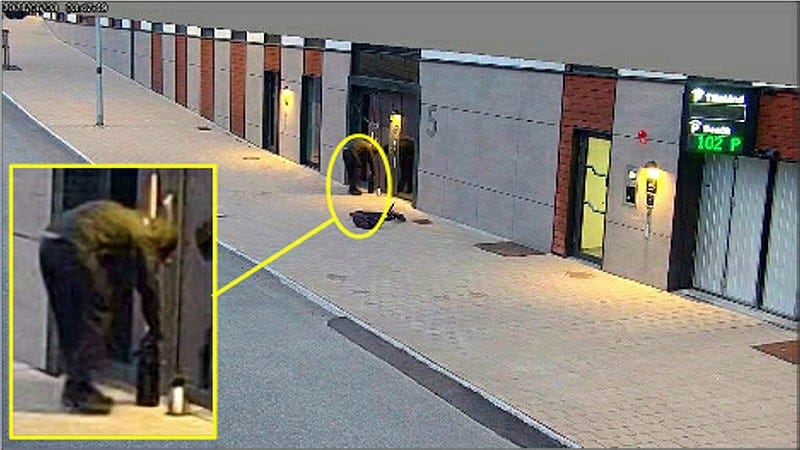In the early hours of June 4, an alarming incident unfolded at the entrance of the Swedish defense contractor Elbit, when two burning thermoses were found. Thankfully, these thermoses were not actual bombs, but their discovery raised serious security concerns. Surveillance footage captured a person at the scene, but they managed to flee before being apprehended. This incident marked the beginning of a series of criminal activities targeting the company, which is a subsidiary of Elbit Systems, an Israeli arms manufacturer known for producing drone weapons for the Israeli military.
Just two days later, a further attempt was made to plant an explosive device outside the same entrance. Although the device was allegedly functional and posed a serious threat, the plot was disrupted by the police, who intervened in time to prevent an explosion. Once again, the suspects escaped the scene, eluding capture despite law enforcement’s immediate response. This led authorities to heighten their investigation into the events surrounding Elbit, leading to subsequent arrests later in the summer.
Three individuals—a 16-year-old, a 24-year-old, and a 29-year-old—were ultimately arrested and charged with conducting these acts of terrorism on behalf of others. Prosecutor Johan Udén attributed their actions to being hired rather than motivated by personal ideology. The trial concluded with all three individuals being convicted by the Gothenburg District Court. The 24-year-old received a seven-year prison sentence for serious threats and attempted destruction, while the younger 16-year-old was sentenced to closed juvenile custody for one year and two months. Despite their denials, the court was swayed by compelling evidence, including video footage, DNA found at the scene, and electronic communications linking the suspects to the crimes.
The 29-year-old faced a lesser charge, being found guilty only of handling the explosive device later discovered in his apartment. Although he denied any wrongdoing, evidence suggested that his mobile device had been active near Elbit during the foiled bombing attempt. Complications arose due to the nature of the charges; while the court had no definitive links proving he was involved in the earlier incidents, it did establish his connection through the evidence found in his home. Prosecutor Udén expressed satisfaction with the court’s ruling, stating that the juvenile sentence served as a significant form of justice, with no early release options available.
A significant highlight of the trial was the imposition of substantial reparations, with the convicted individuals jointly responsible for nearly five million kronor in damages to Elbit. This ruling served as a stark warning to those contemplating similar criminal acts, demonstrating the potential long-term financial repercussions that could accompany such actions, regardless of the initial motivations behind them. The prosecutor emphasized that this financial burden could weigh heavily on those who engage in acts of violent dissent against corporations involved in defense contracts.
The inquiry into the origins of these schemes and those orchestrating such attacks remains active, as authorities continue to explore the broader context of these acts of violence. Prosecutor Udén acknowledged the ongoing investigation into potential masterminds behind these attacks, though it operates separately from his current case. The attacks on Elbit are part of a larger pattern of assault against defense contractors in Sweden, with Elbit being particularly vulnerable following escalations in conflict linked to geopolitical tensions, including those surrounding Hamas and Israel.














